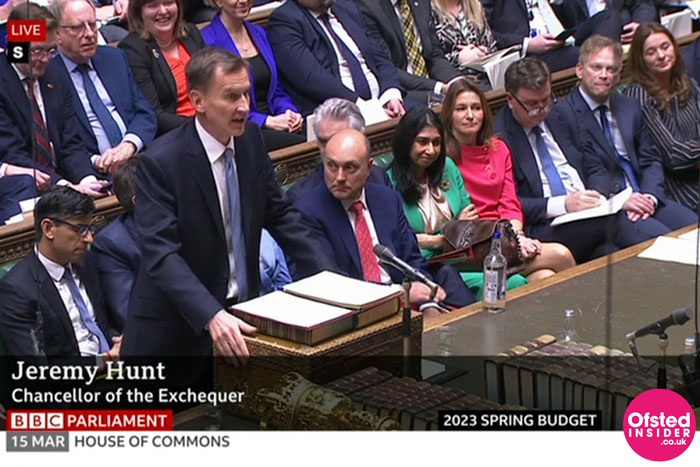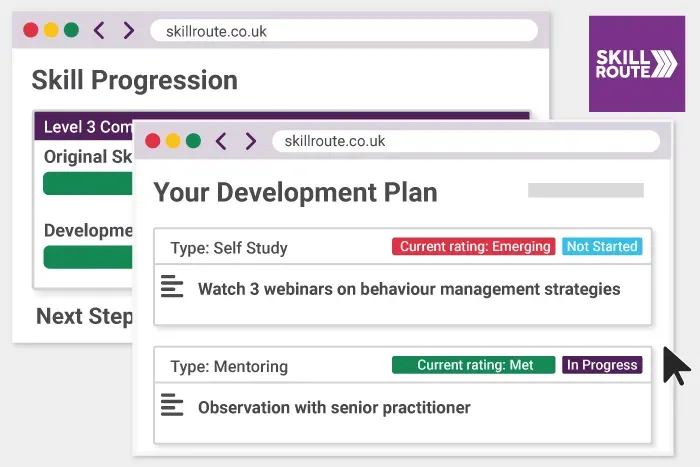Chancellor Jeremy Hunt Unveils Childcare and Education Reforms in Spring Budget 2023

Chancellor of the Exchequer, Jeremy Hunt, unveiled a series of ambitious childcare and education reforms in his Spring Budget announcement on March 15th, 2023. The proposed policies focus on increasing the availability and affordability of childcare, presenting both opportunities and challenges for nursery managers and childcare professionals in the UK, particularly amidst the ongoing staffing crisis.
A significant highlight for nursery owners and managers is the increase in funding for nurseries providing childcare under the "30 hours offer." The government plans to allocate an additional £204 million from September, rising to £288 million next year. This substantial funding boost, translating to an average 30% increase in the two-year-old rate, addresses the cost pressures faced by the sector, helping to alleviate some of the financial burdens for nursery managers and owners.
Although the budget did not specifically address the staffing crisis, it introduced measures that could have mixed implications for the sector. One such measure is the pilot incentive program for new child minders. While the program offers £600 for individual childminders and £1,200 for those who join through an agency, aiming to increase the supply of affordable and flexible care, it may also divert some children from attending nurseries, potentially affecting nursery businesses.
Moreover, the budget proposes changes to minimum staff-to-child ratios for two-year-olds in England, from 1:4 to 1:5, bringing it in line with practices in Scotland. While this change could offer providers more flexibility in managing their workforce, it may not fully address the staffing concerns faced by nursery managers and childcare professionals. Importantly, the new ratios will remain optional, giving nursery managers and childcare professionals the autonomy to decide whether or not to adopt these changes.
While the Spring Budget does bring forth increased funding and other proposed measures that can provide some relief to the sector, it may not be enough to address the ongoing staffing crisis faced by nursery managers and childcare professionals. The government's commitment to improving the availability and affordability of childcare in the UK is a positive step, but further action is needed to tackle the staffing challenges within the sector.
Key Points from the Statement
- Piloting incentive payments for new child minders: £600 for individual child minders, and £1,200 for those who join through an agency.
- Increasing funding for nurseries providing free childcare under the "hours offer" by £204 million from September, rising to £288 million next year.
- Changing minimum staff to child ratios from 1:4 to 1:5 for two-year-olds in England.
- Paying childcare costs up front for parents on universal credits who are moving into work or increasing their hours, and increasing the maximum they can claim.
- Funding schools and local authorities to increase the supply of wraparound care for school-aged children, aiming to offer a full wraparound offer by September 2026.
- Introducing 30 hours of free childcare for eligible households where all adults work at least 16 hours, not just for three and four-year-olds, but for a single child over the age of nine months.
- Staged introduction of free childcare for working parents: 15 hours of free care for two-year-olds from April 2024, extended to all children from nine months up from September 2024, and 30 hours free childcare for every single working parent of under-fives from September 2025.
Other Articles

Can My Level 2 Staff Be Left Alone with Children? (2025 Ratio Rules Explained)
May 21, 2025

Understanding Ofsted's New Experience-Based Route for Early Years Staff
February 5, 2025

Are Day Swaps a Good Idea for Your Nursery? A Guide for Owners and Managers
December 11, 2024

Ofsted’s Grading Changes: Impact on Nurseries
September 3, 2024

Nursery Staff Meeting Activities: Scenario Analysis and Role-Play
June 18, 2024

How to Write a Staff Meeting Agenda for Nursery Settings
June 18, 2024

How to Plan a Nursery Staff Meeting
June 18, 2024

Boosting Parent Partnership: 10 Strategies for Nursery Success
May 10, 2024

EYFS 2024: What's Changing? Find out and take the quiz!
November 25, 2023

White Noise for Sleeping Babies: Pros, Cons, and Tips
October 24, 2023
 © Copyright 2021 - 2025. All rights reserved.
© Copyright 2021 - 2025. All rights reserved.